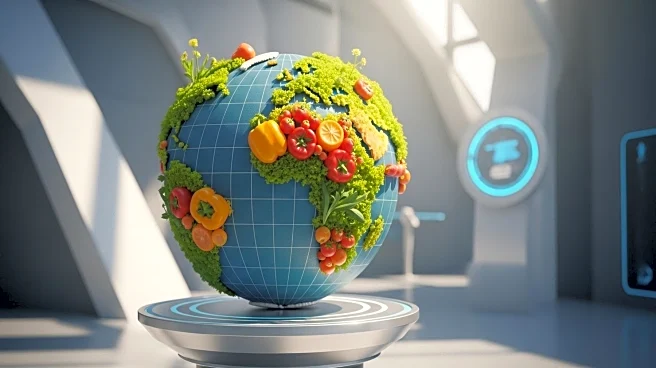What is the story about?
What's Happening?
Nourish Ingredients, an Australian startup specializing in novel fats via fermentation, is establishing a global commercial hub in Leiden, Netherlands. This facility will include R&D, a demo kitchen, product development, and commercial operations. The hub aims to strengthen partnerships with European food manufacturers and serve as a launchpad into various markets. Nourish has developed two core product lines: Tastilux, which delivers authentic animal taste in meat alternatives, and Creamilux, replicating dairy fat properties. The company has secured FEMA GRAS status in the US and is navigating regulatory processes in the EU, China, and other markets.
Why It's Important?
Nourish Ingredients' expansion into Europe signifies the growing importance of microbial fermentation in food production. This technology offers sustainable alternatives to traditional fats, potentially reducing reliance on animal products and addressing environmental concerns. The establishment of a European hub could accelerate the adoption of these innovative fats in global markets, influencing food manufacturing practices and consumer choices. As demand for plant-based and sustainable food options rises, Nourish's products could play a pivotal role in transforming the industry.
What's Next?
Nourish plans to finalize strategic partnerships with leading food manufacturers worldwide, with initial sales expected soon. The company is actively running trials and has signed commercial agreements to support product rollout. As regulatory approvals progress, Nourish's products may become more widely available, potentially leading to collaborations with major food brands and expansion into new categories.
Beyond the Headlines
The use of microbial fermentation to produce tailored fats raises ethical and environmental questions about food production. This technology could reduce the ecological footprint of food manufacturing, but it also challenges traditional agricultural practices. As the industry evolves, stakeholders must consider the implications for farmers, supply chains, and food security.

















